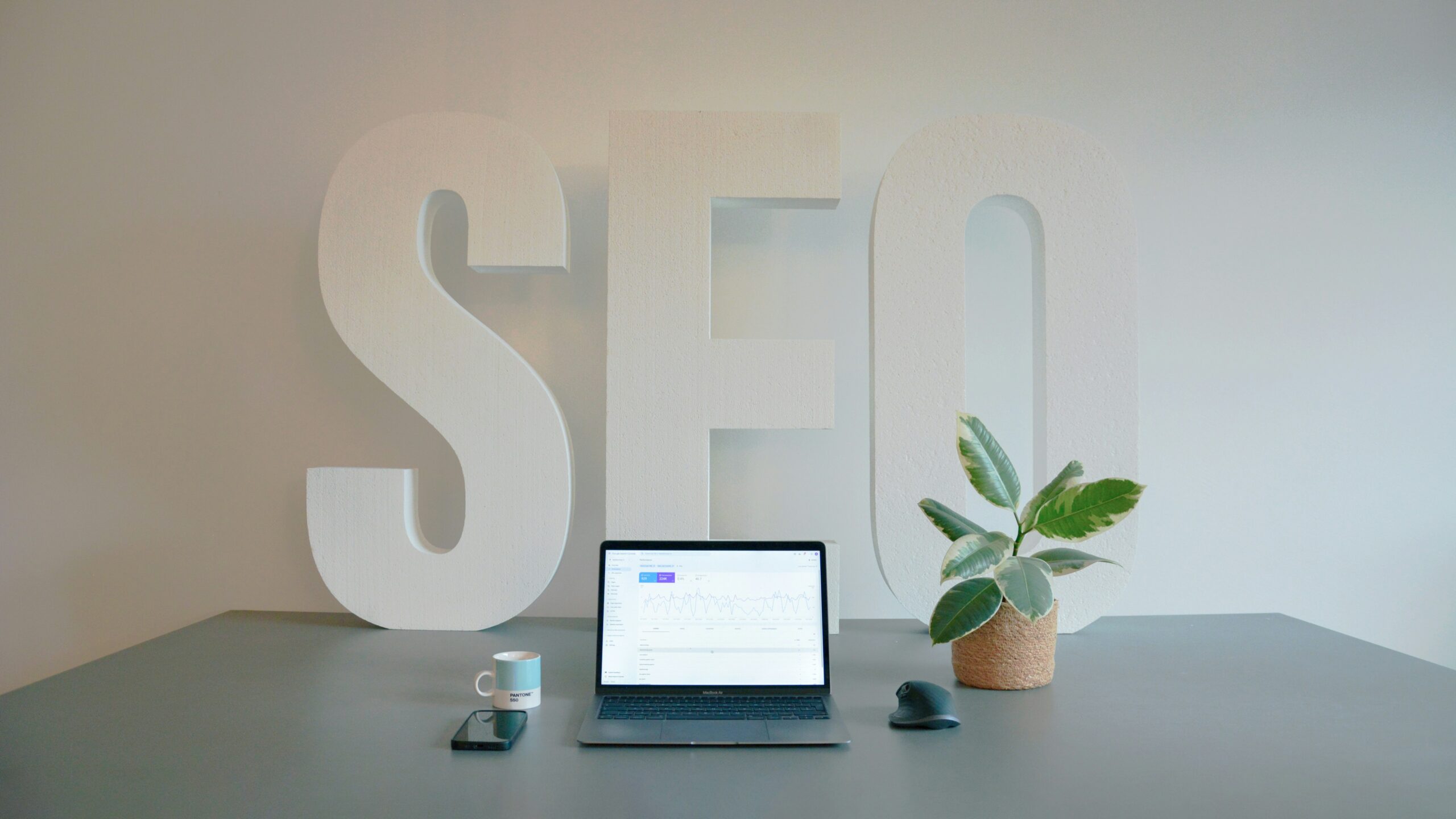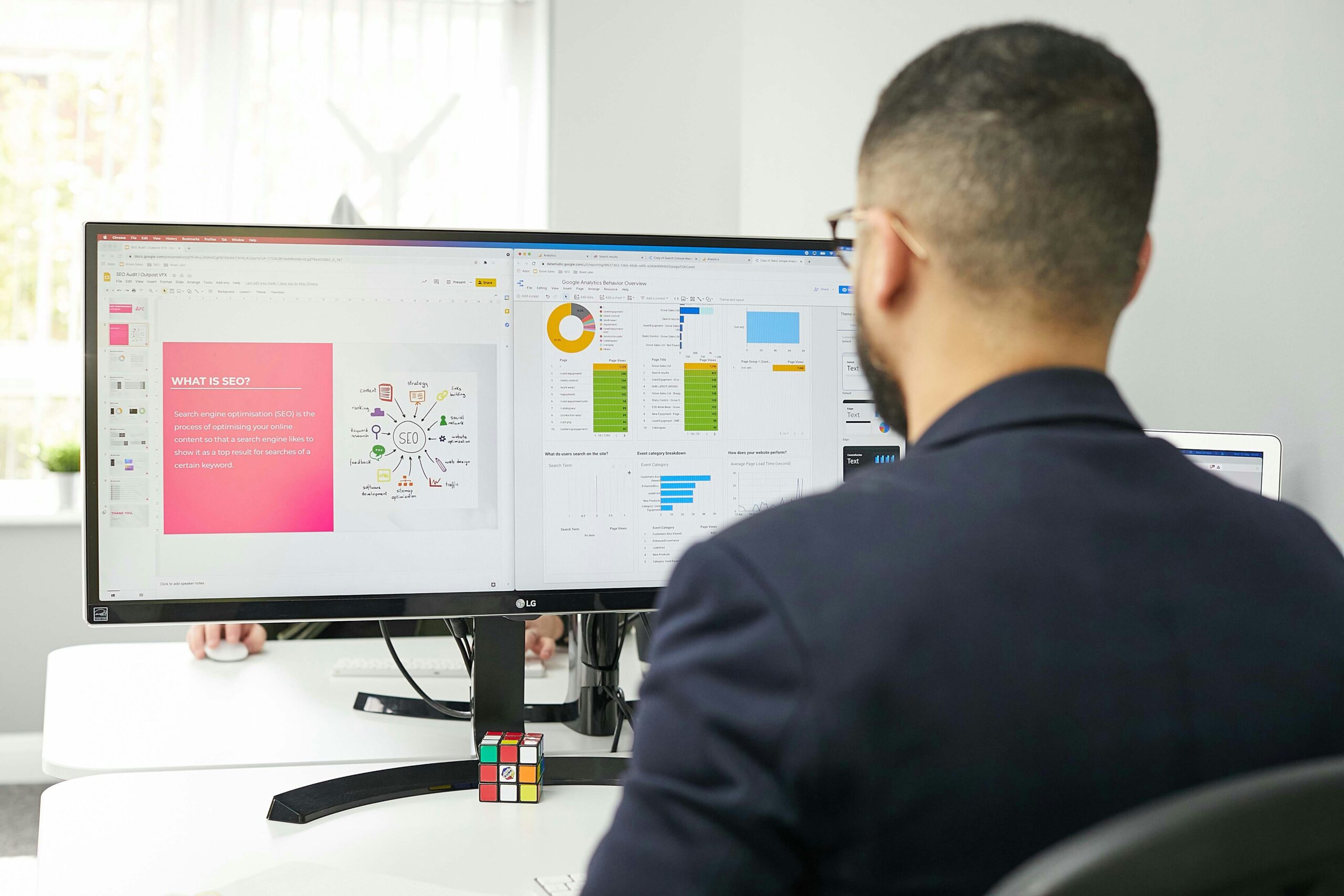Why work with Day by Day Digital over other SEO agencies?
It’s harder than ever to plan, execute, and refine an SEO strategy that actually gets results. The days when blogging and the occasional ad campaign could land you on the front page of the Google search results are over.
Today, SEO has evolved into a complex strategy made of many moving parts that must work together as a unified brand experience. Brands also need to optimize for new features like voice search and featured snippets and ensure that everything is set up properly on the technical side.
What’s more, factors like authority and credibility are becoming increasingly critical to search performance, which means you’ll also need to include reputation management in your SEO strategy.
Day by Day Digital listens to your business goals, gets to know your brand identity, market, and competitive landscape, and uses those insights to develop a custom strategy that gets you where you need to go–and beyond.
How does SEO work?
SEO works by optimizing a website’s content, conducting keyword research, and earning inbound links to increase that content’s ranking and the website’s visibility. While you can generally see results take effect on the SERP once the webpage has been crawled and indexed by a search engine, SEO efforts can take months to fully materialize.
Why should I care about SEO?
SEO is also one of the only online marketing channels that, when set up correctly, can continue to pay dividends over time. If you provide a solid piece of content that deserves to rank for the right keywords, your traffic can snowball over time, whereas advertising needs continuous funding to send traffic to your site.
What Is Local SEO?
Local SEO differs from traditional SEO in that it’s an effort to rank a website for people in a specific region.
Whereas traditional SEO usually involves ranking a site so that people all across the nation (if not all over the world) will find it when they search for a specific keyword or phrase, Local SEO is meant to reach people in carefully defined area (such as Dallas, Texas or Raleigh, NC).
Local SEO is most often applied to brick-and-mortar locations or those targeting consumers in a very specific area, as well as larger franchises that target multiple, specific locations.
For example, if you’re an electrician in Dallas with a website, it’s not likely that you’d want your site to be visible to people in New York who are searching for an electrician. You would, however, want people in the DFW area to find your website.
Local SEO optimization generally includes claiming and optimizing a business’s Google My Business page, getting local citation listings, generating reviews, and a content marketing strategy that emphasis location-specific keywords and trends.
Keep in mind also that when people search for local businesses, some of the top results are eligible to appear in the Local 3-Pack. That’s a box with highlighted business listings that appear at the very top of the search results.
If you’re running a business in need of Local SEO, you want to be in the Local 3-Pack.
At Day by Day Digital, our team of Local SEO experts knows all the tricks to give your website the greatest chance of landing in the Local 3-Pack.
What questions should you ask an SEO agency before hiring?
- What types of SEO strategies do you implement for your clients?
- How do you know this will work for me?
- What monthly deliverables can I expect if I retain your agency?
- Will that really move the needle as I compete with [Competitor Name]?
- How do you measure the success of your campaigns?
- What tools do you use?
- Can I see the results from some of your other clients?
- What pricing model do you use?
- How will I be involved in the process?
- Who will I be in contact with, and how will you keep me updated?
- How will I know progress is being made?
- What happens if I choose to terminate our contract?
What are SEO keywords?
Simply put, SEO keywords are words or phrases that describe the content of your site and what it is about. Search engines, like Google, then use that information to determine if the content is relevant to a particular search query and how the page should rank in those searches. In essence, keywords are what gives a web page its search ranking. And as a result, they are what help people find your website.
Content Frequently Asked Questions
What is content marketing?
Content marketing is when you use content creation to help your marketing efforts.
For example, if you create blogs, videos, or social media posts that are meant to be seen and shared, then you are technically working with content marketing.
However, creating content that will ultimately help your digital marketing plan is where it can get tricky. This is why having a content strategy is important and understanding your keywords, semantically related keywords and the voice and mediums your audience prefers.
How much money should I expect to spend per month on effective content marketing?
There’s no set amount, and it depends so much on your company’s size, goals and budget. At Day by Day Digital, we will create a customized proposal that suggests just how much money we believe you should dedicate to finding and securing new users through digital marketing.
For a free consultation, click here!
Why is having a content strategy important?
Diving straight into content writing without a good blueprint is like diving into the deep sea with no knowledge of swimming and no float. With no skill and no clear aim to get to shore, you end up treading water with all your strength just to try and keep your head above waters.
Without a well-defined content strategy, the content you end up producing will end up being either generic or confusing. Generic content has no value.
If you wish to beat out your competitors online, quality content is key.
Furthermore, generic content does not serve to engage and is unlikely to rank organically.
What kind of results can I expect from content marketing?
This depends what your needs/goals are. For example, an online news portal looking to build its online presence will have very different goals to a small business looking to increase its customer base.
Generally speaking though, you should expect one or all of the following results from your content marketing strategy, once it has matured:
Brand awareness: You should be seeing more traffic from search and social, more referral traffic from third-party sites (via links) and an uptake in brand mentions across the web.
Engagement: Over time your content will get more likes, shares and other engagement on social media, as well as more inbound links from third-party sources.
Search visibility: As your content marketing strategy matures, your pages should rank higher in search engines for your target keywords and your overall domain authority should also increase.
Authority: As your strategy matures, your brand will build more authority within its industry and earn trust from a wider audience of people.
Lead generation: You should be generating a higher volume of leads from search, social and potentially offline as well.
Lead nurturing: A higher volume of leads turning into customers as your content marketing strategy guides them along the buying process.
Customer retention: A higher proportion of customers buying from you more than once.
Return on investment: A solid strategy should always pay for itself (and then some).
It’s important to have a solid understanding of what your real goals are and to stay focused on them. A common mistake marketers make is looking at the wrong KPIs or getting distracted by other goals.
For example, if your aim is to generate more leads then increasing traffic is probably going to be one of your objectives to make this happen. But getting bogged down in traffic numbers can take your attention away from attracting the right kind of visitors or increasing the percentage of users who convert into leads after landing on your site.
Higher traffic numbers don’t always equate to more leads – so make sure you know what you’re really trying to achieve.
What are the benefits of content marketing?
Above all, the key benefit is guiding people towards buying from you with confidence. When there are hundreds or thousands of other businesses like yours that people could buy from, content is how you differentiate your brand and show them why they should be doing business with you.
This will always be your goal, although there are other benefits worth mentioning too:
Meaningful relationships: A successful content marketing strategy builds meaningful, lasting relationships with people likely to buy from you.
Trust: These relationships earn the trust of your target audience, which is crucial when it comes to choosing who they’ll buy from.
Engagement: Keep your target audience engaged over a long period of time so your brand becomes a valuable part of their lives and the first one they think of when they need what you’re selling.
Awareness: Grow your audience to increase brand awareness and earn more customers.
Branding: Allows you to craft your brand story, differentiate yourself from the competition and demonstrate what you can do for people that your rival brands can’t.
Repeat purchases: Keep your audience engaged and excited about your brand after the initial purchase to turn them into repeat buyers and brand loyalists.
ROI: Over time, content marketing should be your most cost-effective lead generation and nurturing strategy – another key finding from the Kapost and Eloqua study we linked to above.
How is content marketing different to SEO?
This is a common question and it’s important to understand the difference to do both effectively. Content marketing is a broad strategy that targets users across various channels (search, social, email etc) and engages users as they move between them. Without these channels, nobody would be able to see your content and a key part of your strategy is understanding which channel(s) to deliver each piece of content on and how to target users on them.
SEO is about making your content as accessible as possible for search engine users and helping it perform effectively. This starts with optimizing your pages and content for visibility in the searches that matter most but also involves broader, technical factors that affect how people engage with your pages (mobile optimization, loading times, etc).
Web Design Frequently Asked Questions
Does Day by Day Digital claim ownership on the work they do for you?
???? This is a major red flag.
The only reason an agency would want to retain ownership of the work they’ve done is that they’re afraid you’ll leave, and they want to maintain leverage. This does not inspire confidence in their abilities.
If the agency is as good as they say they are, then they’ll have no problem handing everything off to you. If we don’t easily deliver everything to you, then imagine what it would be like if you decide to stop working with us.
How much does a website cost?
This is a great(and common) question – and unfortunately, the answer is … it depends!
Do you want a 3-page site? Then your quote will be considerably less than a 30-page site. Are you working in e-commerce, or do you require specializations, extensive custom coding, multiple forms, portals, and platforms? Then your quote will be considerably higher than a simple informational site.
The long and the short? A (solid) website can cost anywhere from $3,000-$50,000.
Contact us to learn more and receive a custom quote for all the needs of your specific industry and website.
Have a number in mind? Let us know and we will work with you.
Can you help me with images and copy for my website?
Yes, absolutely. If you aren’t a natural wordsmith, or if you want the help of a professional, SEO or technical writer, then we can absolutely create copy that speaks to your industry and customers as well as the search engines.
Our content team will research your competition, industry, and utilize our content software tools to find the perfect length, semantically related keywords, linking strategies, and more.
Learn more about our SEO, content, and copywriting services here.
Need photos? We can either go mining with our software and tools for relevant images or provide commercial, team, and product photography services for your website, social media, and more.
How long does it take to create a website?
We work FAST!
Our web design process takes anywhere from 4 to 16 weeks (think 4 weeks for a smaller site and 16 weeks for a large or fully-custom site).
This includes a prep phase where we get to know your needs, and get the needed copy and images, a research phase where we learn your industry, the first design phase and editing phase, and our testing and launch phase.
How often should I update my website?
The short answer? Often.
First, you don’t want your website to be outdated looking, or have outdated content on it and second, you want search engines to see your site isn’t stagnant.
This means blogs, GMB(Google My Business) posts, social media posts, content updates at least monthly, etc.
Can you help with maintaining the website on a monthly basis?
Yep! We are here to take anything and everything off your plate.
Our monthly maintenance will ensure your website stays up-to-date and never crashes or is hacked.
Weekly Tips & Tricks
We put our money where our mouth is! We are not in the business of recommending something we don’t do ourselves … every week we share educational content breaking down best practices, the latest trends, insider secrets, and much more for anyone to understand.



